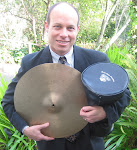A new young generation of Americans was breaking away from the habits of its parents and defining itself by its music. There was nothing the parents could do: This generation was armed with both money and new inexpensive appliances with which to listen to it (P. 473).The consuming class of teenagers, such a part of popular culture today, first came of age in the mid 1950s. Close to 60 years later teens are buying much more than music. Business advertises for teen dollars in the computer hardware and software, movies, clothes, fast food, cell phone markets as well.
Compare this situation to my grandparents' adolescence. Any money made by the teen was given to the family fund.
- So are we teaching teens the value of money or enjoyment of cheap thrills of consumer culture?
- The value of helping out one's family and community or the ephemeral pleasure of spending on oneself?
- Deferred or immediate gratification?
- The value of a good reputation or the cost of an Ipod?
What do you think?





I think it's really a combination because many parents, especially in the throngs of middle class America I believe, try to take an active role in teaching their kids about money, and some succeed in their goals, and some don't.
ReplyDeleteHowever, between the parents that don't succeed in teaching their kids how to responsibly manage their money and the parents that don't even try (likely due to an extreme lack or extreme possession of wealth) I think a lot of teenagers don't know the value of money and many have to learn through more difficult means later in life. I think this is also part of the reason that predatory loans have been so effective. In the search for immediate gratification, which seems to me to be rampant among many of my peers, there's a loss of money, and then it becomes about making ends meet, and then it's hard to save up because many people don't know how to live more efficient life styles, and then you get nasty economic cycles and traps of the lower economic classes.
I know my parents faced a lot of debt early on in their relationship due to traveling and eating out and all those other things that people are "supposed" to do in their mid-20's before their "too old", but it took them a long time to get through that debt, and they taught my sister and I that we really have to be careful. They gave us an allowance and made us write spreadsheets on what we were buying - including food, clothes, toiletries, music lessons, and then whatever else we wanted to buy as well, but the point was to give us a balanced perspective by showing us how money should be used for the things we need and not just the things we want.
Many of my peers in college, especially at a notoriously wealthy school like USC, seem to have a habit of excess. At USC, a lot of people say that it's a part of college life, but I beg to differ. With thousands of dollars in loans to worry about already, my focus is on the education, not the new-found freedom to be financially and/or physically careless.
Thanks, Christian. Your folks gave you excellent training.
ReplyDelete